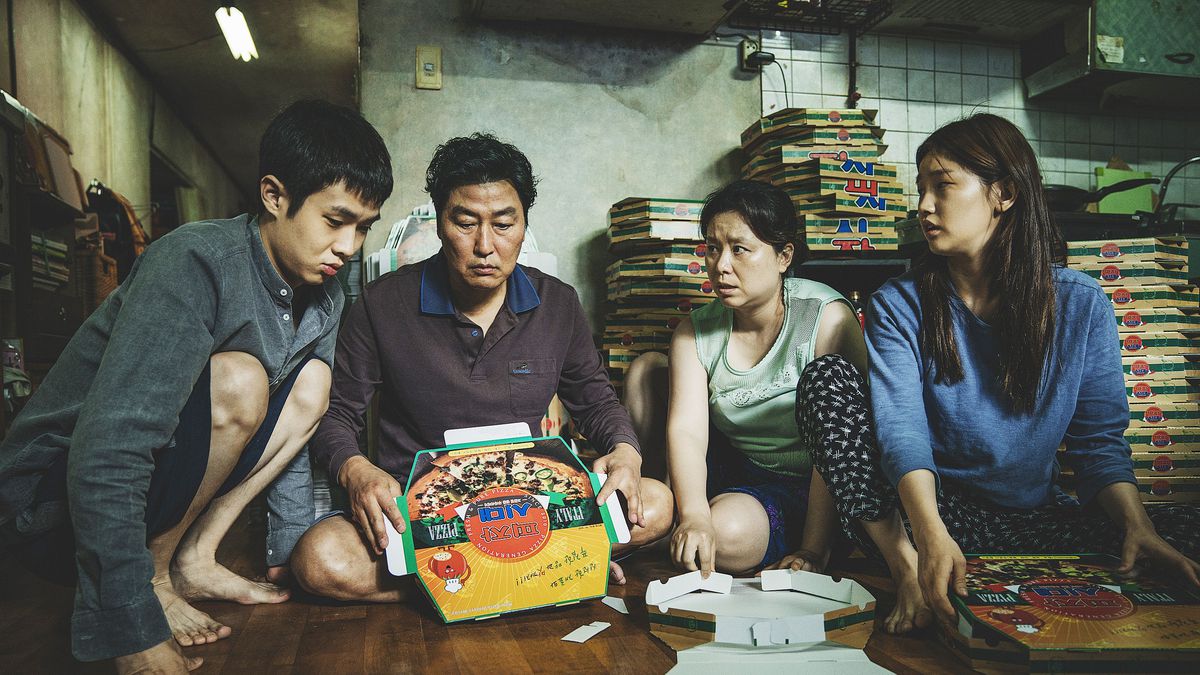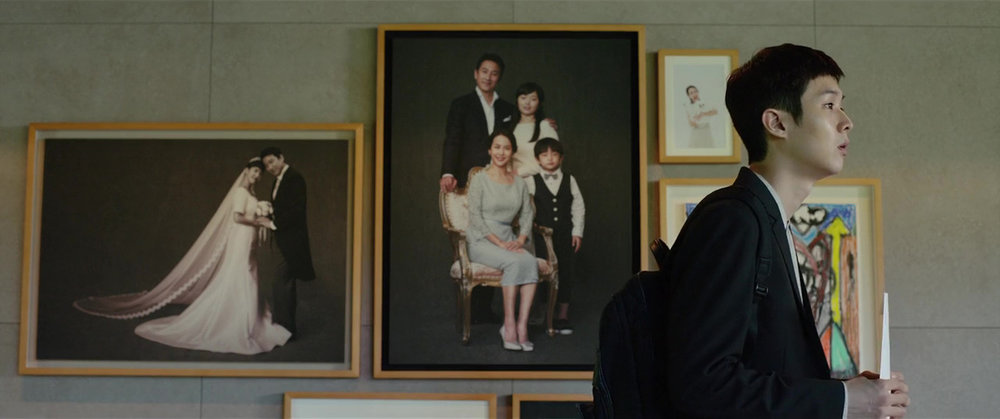
As worldwide outrage over wealth disparity grows, who better to speak to bubbling class tension than Bong Joon-Ho? The South Korean auteur has made a career out of wickedly entertaining flicks that tease at societal rot, whether that be in the form of police brutality, government corruption, or unjust distributions of power. Some are very explicit in their messages (Snowpiercer, Okja), while others are more subtle (Mother, Memories of a Murder), but almost all of these stories deftly weave their themes into their narratives, their underlying messages naturally extending from character motivations. Parasite feels like a culmination of this trend, a black-comedy thriller that is both delightful and disturbing, both hilarious and tragic, often all at the same time.
We follow the down on their luck Kim family, consisting of Ki-Taek, his wife Chung-sook, their son Ki-woo, and their daughter Ki-jeong. Living in a cramped semi-basement apartment, they are collectively out of work, reduced to perform low-paying odd jobs to mete out a meager existence. But one day, their fortunes seem to change for the better. Ki-woo’s college attending friend Min-hyuk pays the family a visit, gifting them a “fortune stone” which supposedly should bring them wealth. But more pressingly, he tells Ki-woo about a job opportunity, a tutoring gig for the rich Park family that he will be passing up as goes to travel abroad.

At the interview, Ki-woo is stunned by the beauty of the Park mansion but can put on a convincing facade. He is no longer unemployed or impoverished but adopts the role of a commanding English major who wins over Da-song, the gullible mother of the Park household, to begin the mentorship of her highschool aged daughter Da-hye. But Ki-woo doesn’t stop here. He connives to get the rest of his family jobs at the Park residence, even if it means supplanting the existing help.
Much like its protagonists, Parasite snakes it’s way around your gullet, slowly applying pressure until convulsing in a fit of violence. Tension builds gradually, the Kim family executing an increasingly complicated plan to fully invade their wealthy patron’s home. Their schemes are devilish but thrilling, and in classic crime movie fashion, it’s hard to refrain applauding their ingenuity. The performances certainly help, and the shifting personas that these actors portray suck us into the intrigue. However, it doesn’t take long for the consequences of this deception to become apparent. Eventually, their campaign targets the existing employees of this household, a driver and the nanny. The Kim family’s “enemies” happen to be other working-class people who inhabit the roles that they pine for, implying that in this broken system everyone who isn’t at the top is left to fight for the scraps, tearing each other apart for the reward of becoming a servant.
There is an undeniable simmering rage at the heart of this tale, anger over the status quo and how it leads to people mistreating one another. But this malcontentment doesn’t come across as one-sided zealotry. The Park family are not sadistic masters. Their greatest crime is ignorance. Our protagonists, the Kim family, are the ones actually breaking the law, but the Park’s callous attitude towards those ”below them” gradually compounds until reaching a breaking point, their disdain and lack of empathy bringing ruin. Still what starts for the Kim family as a plan to put food on the table devolves into greed.

But this weighty discourse on modern society and class relations isn’t purely cerebral. Managing tone as expertly as ever, Bong jumps between scenes of excruciating tension, to moments of humor, often mixing the two. The bleak comedy at the heart of the proceedings makes the dark turns of the story as sobering as they are funny, the absurdity of the lengths these people are willing to go to get a job contrasting against the grim reality underlying their circumstances. The Park’s schemes are shot with deliberate tracking shots and a sense of dramatic intensity that contrasts with the relative mundanity of their actions. That is, until their actions cease to be mundane, at which point the same layered staging and precise camera work depict a far more sinister turn of events. The twists and turns are depicted with suffocating tension which evolves into some of the most memorable moments in recent cinema.
Parasite is a film that speaks to contemporary societal problems without feeling didactic, as entertaining as it is insightful. Painting a complex picture of class relations, its characters are a tragically flawed bunch that truly brings out the worst in each other. Their collective downward spiral is portrayed with tension, nuance, and dour glee, the product of a director at the top of his craft.
Rating 5/5






